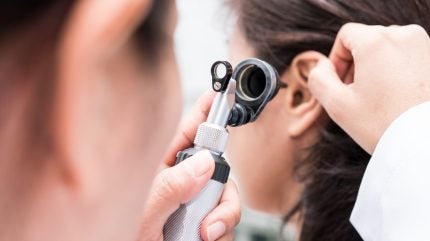
Sound Pharmaceuticals has concluded the Phase III clinical trial of SPI-1005, an investigational anti-inflammatory therapy aimed at treating Meniere’s disease.
Dubbed STOPMD-3, the study is claimed to be the longest treatment trial for a hearing loss or tinnitus indication.

Discover B2B Marketing That Performs
Combine business intelligence and editorial excellence to reach engaged professionals across 36 leading media platforms.
Initially, the study enrolled subjects into a randomised controlled trial (RCT) for three months and they were subsequently part of an open-label extension (OLE) for six months (OLE 6-mo) and an optional six additional months (OLE 12-mo).
The study is now in the RCT data analysis stage with interim topline results anticipated to be presented this quarter.
The STOPMD-3 study began subject randomisation in August 2022 and concluded with the last patient visit on 25 July 2024.
Throughout the trial, 254 patients were screened at 11 leading academic centres in the US, with 221 eligible patients being randomised to receive either SPI-1005 or a placebo.

US Tariffs are shifting - will you react or anticipate?
Don’t let policy changes catch you off guard. Stay proactive with real-time data and expert analysis.
By GlobalDataSPI-1005, which contains the new chemical entity ebselen, is the only asset said to have entered a Phase III trial for improving auditory symptoms in Meniere’s disease over the past three years.
The disease is characterised by vertigo, hearing loss, and tinnitus, typically diagnosed in individuals aged between 40 and 65 years.
The condition can lead to severe hearing loss or intractable tinnitus as patients age.
Ebselen, the active ingredient in SPI-1005, mimics and induces glutathione peroxidase (GPx) activity, which is crucial in reducing neuroinflammation.
This activity is vital for various cell types, including those in the inner ear, and its loss has been linked to sensorineural hearing loss in animal models.
SPI-1005 has previously shown potential in two completed Phase Ib and IIb studies involving more than 165 patients.
Furthermore, it is being developed for various neurotologic indications, including noise-induced hearing loss and ototoxicity caused by certain antibiotics and chemotherapy agents.
Sound Pharmaceuticals co-founder and CEO Jonathan Kil said: “We are grateful to all the patients that participated in this pivotal trial of SPI-1005.”





